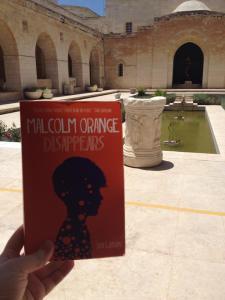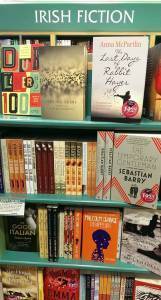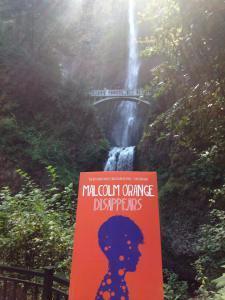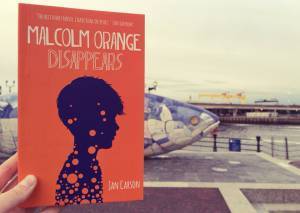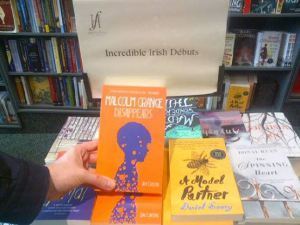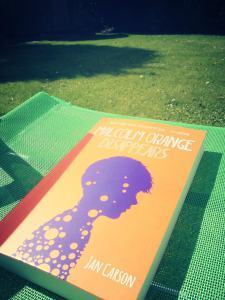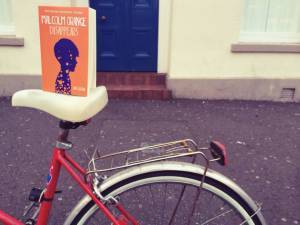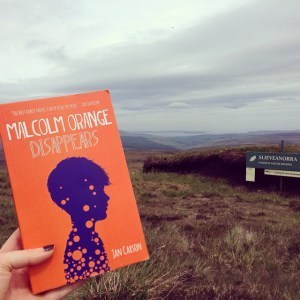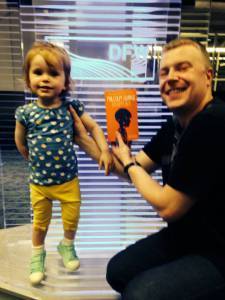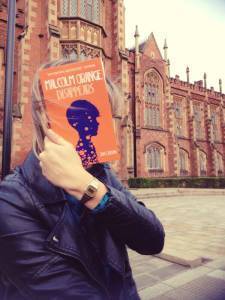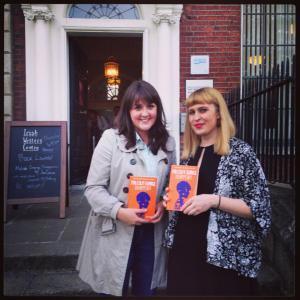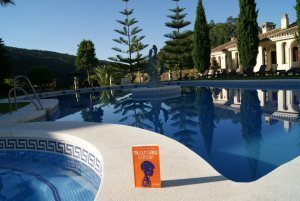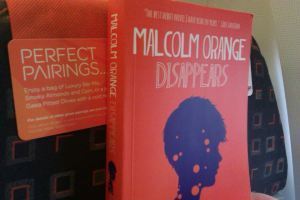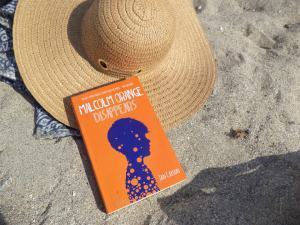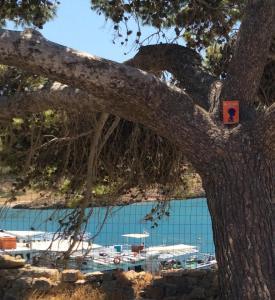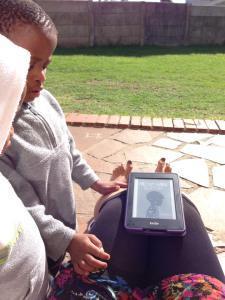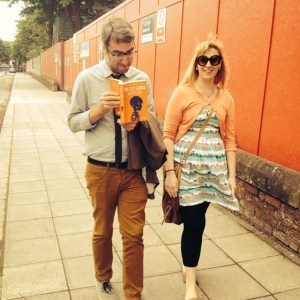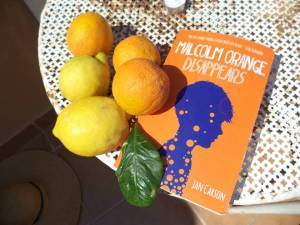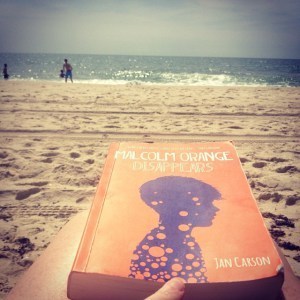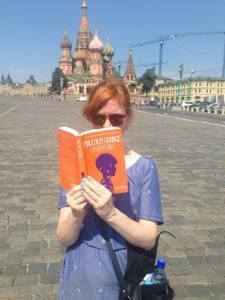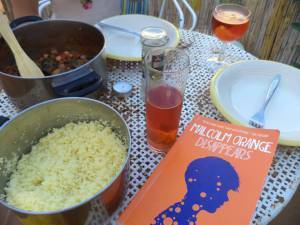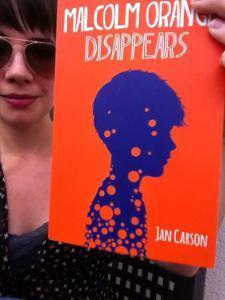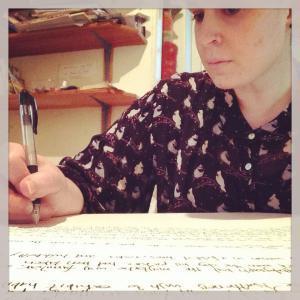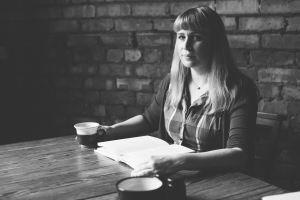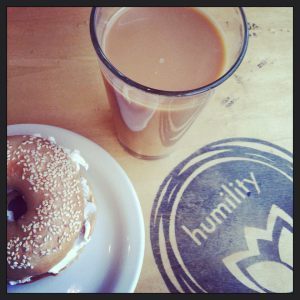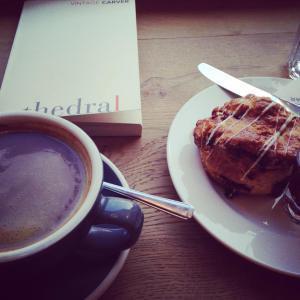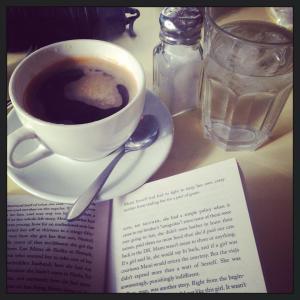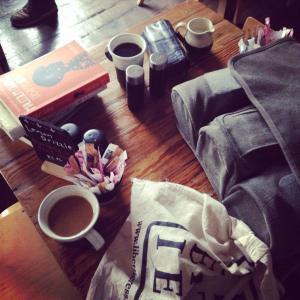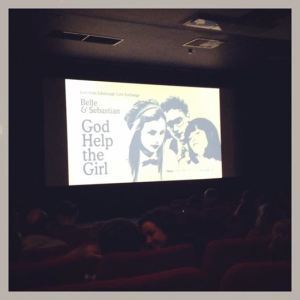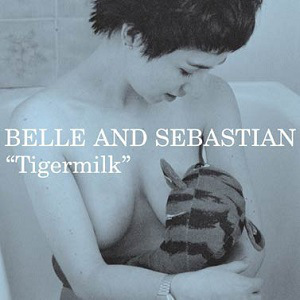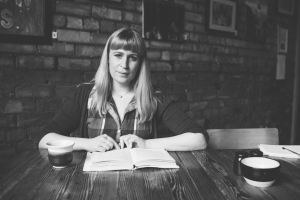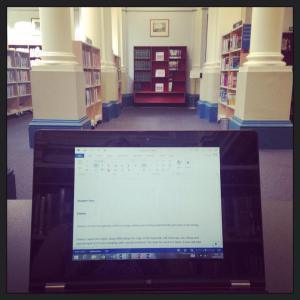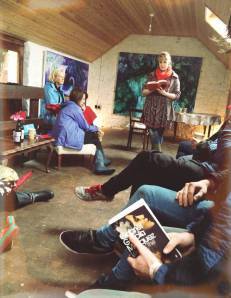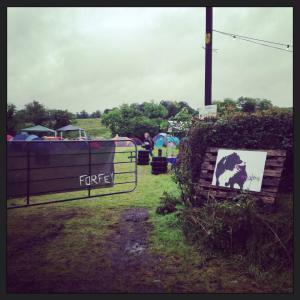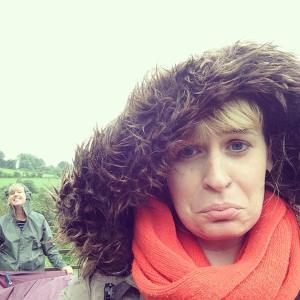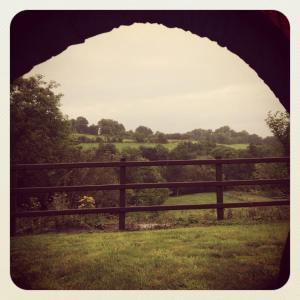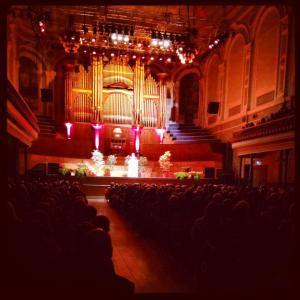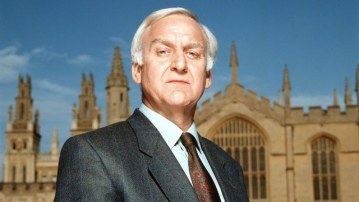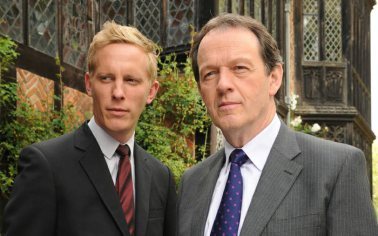Jan Carson's Blog, page 28
August 27, 2014
Malcolm Abroad
Malcolm Orange has been a very well-travelled fictional character this summer. He’s been hanging out in the Sahara Desert, Jerusalem, the Grand Canyon and many many sun loungers all across Continental Europe. In fact, he’s had a much more exciting summer than me. Thanks so much for sending your photos in folks. It’s been lovely to hear you’re enjoying the book and taking it on your holidays with you. Keep them coming and here’s a selection to give you a few ideas. The special prize for best so far is going to Marie for her Malcolm in Russia shot.


August 24, 2014
The Loneliness of the Long Distance Writer
It’s been almost a month since I began my career break. In some ways the time has flown. I’ve managed to finish writing three more chapters of Roundabouts and, although there have been small blocks, have found it reasonably easy to manage around a thousand words a day. I’ve read some great novels. I’ve planned most of my upcoming tour of the US and taken the time to arrange every one of my own books in alphabetical order. It feels like my days have been pretty full and a lot has been accomplished already.
In another sense, however, this has been one of the longest months I’ve ever lived through. I knew it would be a good learning experience to live for a short period as a full-time writer. I knew I’d learn a lot about my own character and temperament. I hoped it would give me some insight into whether or not this was a lifestyle I could pursue at some stage in the future. I didn’t realise just how stretching the experience would be. Some of things I’ve learnt this month have been old lessons, revisited, others have been brand new revelations. While I’m grateful to have had the opportunity to discover a little more about myself and my temperament as an artist, it’s definitely not been the easiest of months.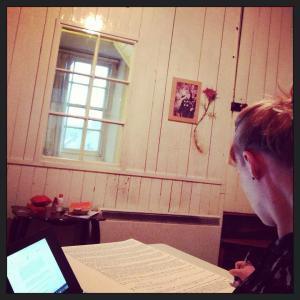
I’ve discovered that I am more social than I thought I was. It’s many years since I last spent such a prolonged period of uninterrupted time in my own company. After a couple of weekends where I went almost 48 hours without talking meaningfully to another human being, I realised that isolation, far from aiding creativity, actually drives me a bit mad. Small helpings of silence are absolutely fine and probably quite productive but every half day or so I need a good conversation to sustain me for the next period of writing. If isolation is allowed to continue for too long it leads to loneliness and loneliness seems to make my writing overly whiney and introspective.
I’ve discovered that what I’m reading directly impacts what I’m writing. I’m currently 750 pages into Murakami’s epic 1Q84 trilogy and am struggling to keep my novel’s feet anchored to the ground as I grow more and more tempted to introduce weird happenings just for the sake of seeing how much I can disconcert my readers.
I’ve discovered that I actually crave routine. I’m not a procrastinator. I’ve managed to write consistently and extensively throughout the month. However, I actually found the experience of writing into an excess of unstructured time relatively stressful. I like boundaries. I like business, (within reason). I write better under pressure. I do not need twelve hours to write a thousand words. If I’m well-rested and inspired I can write my thousand words just as well in the tiny two hour gaps afforded by a working week. This was quite an encouraging thing to discover as financially it’s unlikely that I’m going to have twelve hour uninterrupted writing days any time in the next thirty years or so. Crunching the numbers, I worked out that if I continue to write a thousand words a day,roughly 5 days a week once I return to work, and I factor in editing and promotion, I could still churn out a novel at least once a year. This is quite the relief.
I’ve discovered the importance of the basic things. I still need to a decent amount of sleep if I’m to be able to concentrate properly. I write with a much clearer head when I’ve been eating well and not coasting on caffeine and sugar. I need to walk for at least half an hour a day, otherwise the ideas seem to get stuck and the characters don’t develop properly. All these points, though rather obvious, have come as something as a revelation. For some reason I thought writers could exist outside the normal rules and perhaps I could for a short time, or if I was ten years younger, but full-time writing is just as disciplined as a full-time desk job and requires the same basic staples to sustain it.
I’ve discovered that the cinema is the only place where I can be 100% distracted from my own stories. I’ve therefore been spending an inordinate amount of time in the QFT.
I’ve discovered that too much introspection isn’t good for me. This month I’ve been having most of my best conversations inside my own head or on a computer screen. Without the levelling influence of friends and colleagues I’ve become more morose than I usually am. I’ve worried more than I usually do about things which rarely bother me and I’ve felt like a thoroughly selfish person, preoccupied with the inside of my own head. I think I’m beginning to learn that, at my most basic level, I’m wired for community and meaningful engagement with other people. All the very important thinkings which take place inside my head are not to be dismissed. They are of worth and my writing has undoubtedly benefitting from all this unchecked pondering. However, I don’t just want to be a writer. I also want to be a functional human being, a good friend, a decent work colleague, a person able to to practice care and kindness towards others, and so my introspection must always be balanced out with interaction.
I’ve discovered that, without the interference of an alarm clock, my natural waking time is nine twenty five. This strikes me as perfectly normal and proves that I am not as lazy as I was ten years ago.


August 20, 2014
One More Cup of Coffee
There are two kinds of writers: writers who require a quiet, fuss-free environment to write and writers who can barely squeeze a word out if there isn’t a little background bustle to oil the inspiration process. I subscribe to the second camp and whilst, (somewhat bizarrely), I’m completely capable of writing non-fiction, blogs, journalism and academic material in complete, contemplative silence I can’t seem to incite my imagination for writing fiction in a quiet place. I spend hours and hours every week in the coffee shops of Belfast. I am the girl in the corner of Clements with one hand over my mouth, glaring furiously at the screen as I read aloud to myself and thump the keyboard so hard I burn out spacebars at a rate of one every two years. Sometimes I think I should affix a sign to my habitual table or inform the baristas, “serious writer at work. You will thank me when you can claim inspiration for my next Booker prize-winning novel. It’ll be just like JK Rowling and that Elephant place in Edinburgh.” I often wonder what the baristas of Belfast make of me; whether they can tell I’m a genius or assume me a strange friendless girl who can’t get enough of journaling.
Though it’s a little depressing to think about it, I’m probably investing the guts of £1,500 a year in our local coffee shops. It’s an enormous amount when you consider I could be making myself thousands of cups of Nescafe at home for the same price. Then again, if 500 plus cups of coffee, (and the occasional caramel square), is what it takes to create stories, it’s not that enormous an investment and cheaper/less harmful by far than the large amounts of whiskey and red wine some other writers seem to require in order to get words on to the page. It’s not the coffee which inspires me. It certainly isn’t the background music, (though Common Grounds I give you kudos for hitting the mark much more often than any other Belfast-based coffee shop). Neither is it the setting for most of our coffee shops are still variations on a Starbucks-dictated theme. It’s the hum of life which hangs in the air of a coffee shop, reminding me that I do not write from, or indeed into, a vacuum. I write out of relationship with others. I write in the hope of forging relationship with others through my stories. I can’t find myself inspired by a space which isn’t peopled.
I hear my parenting friends talk about coffee shops which are open to children and coffee shops which simply aren’t child-friendly. The same is true of writers. Most of the coffee shops around the student area are happy enough to let you linger for a couple of hours over a single Americano, pouring over a book or typing away with your headphones on. They’re used to students and possibly keen to cultivate a laidback, intellectual atmosphere. Coffee and books have always sat snugly together like the beginning of a really great idea and most good coffee shops in proper cities will acknowledge this in both their attitude and layout: comfy chairs, decent-sized mugs, a low-level soundtrack, ill-inclined to bust out anything heavier than Elliott Smith. Outside the city centre and, I have to admit I’m specifically thinking Belmont as it’s my neighbourhood, there are some lovely coffee shops. There are even some places which brew pretty decent coffee. Indeed the quality of scone in the outer East is actually superior to those offered in inner city coffee shops. However, I just don’t feel welcome as a writer in any of these coffee shops.
I fully understand that small businesses need to make money and this means turning over tables as quickly as possible. A scruffy girl in a parka who comes in every morning and spends two hours stretching out her single Americano probably isn’t their ideal customer. Judging by what I’ve seen in the last few months they’re ideal customers are newly-retired, minted ladies in Marks and Spencer’s cut offs who take thirty to forty minutes in pairs to down their cappucinos and raspberry white chocolate scones. None of them appear to be writing books or even reading books, (though I did see one lady working her way through the Women’s Realm this morning). I acknowledge that these ladies have more money to spend than me and also co-ordinate better with the sofas and scatter cushions.
However, there’s a lot to be said for loyalty. If I could find a writing spot in a corner of one of the four to five coffee shops within a quarter mile of my front door and the coffee was decent and they didn’t play Cool FM I would buy a coffee there five nights out of seven, (I really would). This would equate to (Belmont Road prices), £11 per week, much more than a Woman’s Realm reading, scone and frothy coffee buying, once a week customer. I would also say nice things in person and on social media about good service, (I’m thinking the opposite to having my half-drunk Americano whisked away from me after forty minutes), good coffee and good service; staff who actually get to know their customers and instigate an ongoing conversation, (full marks Black Bear, Clements on Botanic, Common Grounds, Ground in Waterstones and the lovely, lovely people in the Urban Grind directly behind the Ulster Hall’s stage door). It would be nice to feel like I belong in one of my own neighbourhood’s coffee shops. Perhaps, one of these days, someone will open a writer-friendly spot in the East. I’d have a loyalty card within seconds. In the mean time I will continue to walk, (3.5 miles each way), or drive in my car, (carbon footprinting my way down the Holywood Road and across the Albert Bridge), to one of those nice coffee shops on the other side of town where inspiration comes easy and the baristas don’t linger like ticking time bombs over your shoulder and stories get written in their own sweet, caffeine-lubricated time.


August 16, 2014
You Could Either Be Successful Or Be Us.
I’ve just returned from the premier screening of Stuart Murdoch’s directorial debut, God Help the Girl. It wasn’t great. Murdoch, one of Britain’s best songwriters and, arguably also one of our most gifted storytellers, did not translate well on the big screen. The film came across as a rather lazy pastiche of a Belle and Sebastian song, thin on the ground plot wise and, though peppered with some great songs and a few good one liners, somewhat naively written. However, after sitting through 90 odd minutes of mediocre musical, those audience members still in attendance were treated to a short Belle and Sebastian gig. When I say treated, I really mean treated. We were offered a handful of old school B and S brilliance, songs from the film’s soundtrack sitting comfortably beside recent classics like “Piazza, New York Catcher” and legendary favourites like “Photo Jenny.” The band were tight, refreshingly ordinary-looking and seemingly have a brilliant time playing to a live Edinburgh audience and a larger number of voyeuristic cinema goers scattered throughout the UK and Ireland. I was enthused, (possibly sang along), and was once again reminded of all the very many ways Stuart Murdoch has played an influential role in my artistic development and why, despite this evening’s display of crimes against cinema, I’d still rate him alongside some of my all time favourite artists.
I was sixteen when I first heard Belle and Sebastian. Somebody older and infinitely hipper than me, put “Century of Fakers” on a mix tape and the line, “if you ever go lardy or go lame, I will drop you straight away,” came at me like bullet train. I’d never heard anything like it before. I went straight out and bought Tigermilk. I’ve bought every record since, every single and EP. I’ve bought T-shirts (and T-shirts for my infant niece and nephew who, too young to protest, were B and S fans long before they’d heard any of their songs). I’ve seen them 4 times now, once in the fractured months just before Isobel Campbell’s departure. I have bootlegs, badges, an entire 90,000 word novel called Another Century of Fakers, written as a piece of B and S fan fiction and instantly binned, due to the fact it was utter shite. I’ve walked past Stuart Murdoch pre-sound check in the Ulster Hall and, so over-awed by his genius, was not able to utter a single word, (even something truly banal like “would you like me to show you where the dressing rooms are?” or, “what a jaunty hat you have on tonight). I have been a Belle and Sebastian fan/obsessive for more than half my life.
When people ask me about influences upon my writing I’m always quick to point out that it wasn’t just writers or books which drew me to words. Musicians have played their part too. Dylan taught me the power of a carefully crafted sentence. From Wilco, (and more specifically Jeff Tweedy), I learnt huge lessons about the rhythm and cadence of words; the way they pair and part to create their own peculiar music. And, I shall always be thankful to Stuart Murdoch for showing me how to write a story in three and a half minutes.
Aside, perhaps from Pulp, there is no British band I know of, who so succinctly tell stories with their songs. The earlier Belle and Sebastian records are particularly cutting. Hiding behind the larger than life characters and jaunty pop tunes, Murdoch, much like Jarvis Cocker, delivers pen portraits quietly critiquing a fin de siecle Britain where the working classes are in danger of becoming a caricature and gender anxiety is rife and anyone who challenges the status quo is marginalised and lonely. (“And the Head said that you always were a queer one from the start”). Murdoch has always had both a blinding imagination and an eye for the bizarre: the dogs on wheels, lonely fat girls and cross-dressing kids who populate his songs. He is an irreverent writer, keeping his tongue firmly in cheek as he forces allegory, imagery and rhyme out of their comfort zone, delivering the sort of devastating couplets, which could easily have made MacNiece’s cut for Autumn Journal, had it been written in the late nineties, (“all she wants is a cigarette and a thespian with a caravanette” “we’re four boys in our corduroys, we’re not terrific but we’re competent”). His one line observations are perfectly placed to invoke a wry smile and often reveal an entire, complex story in a single sentence.
Tigermilk and The Boy With the Arab Strap dropped into my late teens like localised explosions. It was a revelation to me that storytelling could be, in the one instance, both heartbreakingly honest and absolutely hilarious. I relished Murdoch’s gothic sensibilities; his delight in the freaks and odd characters who populated the Glasgow in which he lived. I noted and relished the way Belle and Sebastian itself was surrounded in myth; the band having grown out of a now-legendary story, each band member, with their funny little outfits and cameo roles in home movie-esque music videos, characters in the bigger narrative of being Belle and Sebastian. I loved the way Murdich layered up his cultural references piling Dylan, on top of Kerouac and Thin Lizzy; Catcher in the Rye, eyeballing the Women’s Realm. No distinction was made between high and low brow references and the effect was giddyingly brilliant. These were believable characters who liked what they liked because they were real and just as liable to enjoy fish fingers as caviar with their champagne. They were not subject to over-simplified stereotyping. They were intriguing and complex like the people I wanted to write, and indeed, befriend.
Finally Murdoch taught me not to take myself too seriously as a storyteller. He is a self-deprecating writer. In the world of B and S, “get me away from here, I’m dying” is an absolutely appropriate response to a Brit award nomination and “we’re not terrific but we’re competent” a perfectly honest overview of the band’s artistic talent. Apart from a brief period around the turn of the century, when the departing Isobel Campbell upset the band’s equilibrium, Belle and Sebastian have always looked like a group of people thoroughly enjoying themselves on stage and in the studio. They don’t posture. They just tell the kind of stories I want to listen to. This, is perhaps the most important thing I’ve learnt from a decade and a half’s worth of devotion.


August 11, 2014
“Everyday I Write the Book”: Ten Things I’ve Learnt from Ten Days of Writing
1. Writers who say they can write nine to five are telling fibs or taking some kind of performance enhancing drugs- three straight hours is about as much as I can possibly manage before losing the will to live.
2. Good reading leads to good writing- the more quality word I put in, the better the words coming out. Maybe this week I’ll actually dig into Faulkner.
3. Walk your characters out- every time I hit a wall, I go marching round East Belfast and for some strange reason this seems to untangle any knots my characters have managed to get themselves into.
4. Never underestimate the insidious powers of 60 Minute Makeover- Normally I have reasonably good taste in television. Now I watch home makeover programmes and Don’t Tell the Bride and I don’t even feel that guilty about it.
5. Beware the members at the Linenhall Library- I’ve learnt the hard way that there are places where fee payers can sit to write and somewhat less appealing places where everyone else can sit. Also the Births, Deaths and Marriages section attracts an inordinate amount of noisy Americans.
6. Back up, back up, back up- there is no pain, like the pain of accidentally deleting a good morning’s work. If you don’t have a pen drive, email it yourself. It will make you swear out loud in the Linenhall Library and this will not go down well with the fee paying members.
7. Distractions aren’t always distractions- after 48 hours of talking to no one except the fictional characters I’ve been carrying round my head for the last few weeks, I realised that a nice coffee and a good conversation can be just as productive as an another hour of writing, and may actually keep me from crawling up the walls of my own skull.
8. Aim, fire, leave- I’ve been shooting for 1,000 words a day. It’s manageable. It stops me from writing drivel just for the sake of boosting my word count and it’s meant that I’m still interested in a manuscript I’ve written 10,000 words of since the beginning of the month.
9. There’s no shame in talking to yourself in public- I have now perfected the patented one hand over my mouth, reading aloud to myself in coffee shops to get the edit right, technique. People may stare and apparently I look reasonably furious but it’s giving me a really good idea of how the book reads.
10. Fall asleep thinking about your story- Already this week I’ve had two, slightly mental, but really interesting dreams about my characters which have given me some brilliant ideas for where the plot is going. A nice glass of wine before bed can only aid this process.


August 9, 2014
The Day the Music Died
Right now, (and to be honest, most all of this week), I’ve really, really wanted to listen to Sufjan Steven’s “Casimir Pulaski Day”, but I haven’t.
On Tuesday I went to see Richard Linklater’s epic three hour, ten-years-in-the-making, coming of age drama, Boyhood. It was pretty wonderful. One of my favourite parts of the movie was Linklater’s carefully choreographed soundtrack with every song specifically matched to the year in which it was released. It made me remember driving down the Arts Peninsula in 2000 listening to Coldplay, leaving for America with the Flaming Lips’ Yoshimi Battles the Pink Robots on heavy rotation and so many Wilco-soundtracked roadtrips I couldn’t possibly count. I left the cinema with a burning desire to stick Yankee Hotel Foxtrot on my Ipod, but I didn’t.
This morning I was writing my way through one of the Dylan-focused sections of the new novel and I really needed to listen to “Desolation Row”, but I couldn’t.
I haven’t been able to listen to any of my music since June 5th. The last song I remember listening to was “Come On Eileen”, (I was teaching a group of first formers about the night the Ulster Hall floor caved in). After that my Ipod disappeared and with it every single piece of music I own; (for my lap top has also given up the ghost and in the two dozen or so house moves of the last ten years, I seem to have misplaced most all of my CDs). At a rough estimate I think I’ve lost around 2,000 records.
It has taken almost two months for the loss to properly sink in. The book launch and all associated business meant that I was distracted for the last wee while, and quite happy to listen to my one remaining copy of Highway 61 Revisited over and over. Now, I’m off work and focusing on writing and realising just how big a role music has played in my life. I’m recalling, and then mourning, each individual record lost: all the Belle and Sebastians (including eps and a bootleg of the very first time I heard them live), years of Wilco, Low, (how on Earth will I make it through the next rough day without Things We Lost in the Fire?) and about a gazillion Bob Dylan songs.
I am heartbroken. The only thing worse would be the desolation of my bookcase.
Walking takes much longer without music. Coffee shops are noisier and much more difficult to concentrate in. Dinner parties are going to be just a little less atmospheric and, I haven’t even started to think about what I’m going to do the next time I have kids in the Hall and I want to wax lyrical about every epic gig that’s ever taken place in our house, with music accompaniment.
Of course, the songs are still there. Like a bad Hallmark card I’m consoling myself with the fact that most all of them have been committed to heart a long time ago. Perhaps this is a metaphor for the future of all music, where nothing can actually be owned, just downloaded/youtubed/borrowed for three and a half minutes at a time and I should just get over myself and get Spotify. However, I have to say I’m still holding out for a miraculous recovery. I just want my old, faithful Ipod back.
So, if you happen to have been in the same place as me over the last few months, (when life circumstances have left me so scatty I just this morning found my house keys in the laundry basket), then I’d appreciate it if you could take a quick look round your car/down the back of your sofa/in your fridge. And, if you should find there, a brick of an 80 gig Ipod, (something similar to the dolmen stones in 2001 A Space Odyssey), containing an embarrassing amount of Del Amitri and a rather ropey recording of me singing Radiohead’s, “Fake Plastic Trees”, (this being the only song I can actually sing in tune), I’d very much appreciate you returning it to me asap. I will kiss you on the lips, regardless of gender or age, and dedicate my next published novel to you personally. I am, a woman undone, without my copy of Elliot Smith’s Either/Or.


August 6, 2014
On Picking Up Where You Left Off (and Other Minor Mountains To Be Conquered)
So far, this week, I’ve only been a writer. I have been following a strict schedule for my writering, loosely based on years of observing other “just” writers in their natural state.
I have arisen before the hour of 9am, drank coffee, eaten pastries, walked into town whilst thinking about character development, written for three hours in the Central Library or the Linenhall Library, (though less so, the Linenhall, where the “members only” desks and the infernal Americans chittering around the births/deaths/marriages section was not proving to be much of an inspiration), nipped out for a quick lunch, relocated to one of Belfast’s many coffee-dispensing emporiums, written for a further two hours, walked out of town whilst thinking about plot development, eaten a quick dinner, met some fellow artistic types for drinks, (both alcoholic and non-alcoholic), and stimulating conversation, returned home, read Faulkner in bed for an hour, (this part isn’t true, though I have seriously considered giving Mr Faulkner another whirl), and dreamt rich dreams populated by characters and story lines soon to be written, (also a bizarre recurring dream about middle-aged Garth Brooks fans). My first week as a full-time writer has been self-indulgent and for the most part, glorious, though not without its challenges.
ITV3 is a constant temptress, offering round-the-clock and terribly distracting episodes of Murder She Wrote and Inspector Morse, every time I linger too long in the general vicinity of the living room couch. I am drinking too much coffee and consequently staying up too late and putting my carefully planned, arise before 9, schedule at risk. I am missing my Ipod like an actual hole in the head. It is almost impossible to block out the coffee-drinkers’ background chatter without a pair of headphones and a moderately loud serving of Bob Dylan. I am only having writerly conversations and forgetting how to talk about normal things; for example, recent apocalyptic trends in the weather/the Great British Bake Off. (Just this afternoon I even managed to have a writerly conversation with my six year old nephew. Instigated by the nephew it began with him asking, “why are artists always grumpy?” and ended up with me explaining the purpose of the play within a play structure in Hamlet. To his credit, the six year old seemed genuinely interested and possibly exhibiting early signs of a pending MacArthur genius grant). Mostly, however, I have struggled with getting over my own insecurities and getting back into the new novel.
I’ve just finished reading Northern Irish short story writer, Anne Devlin’s beautiful collection, The Way Paver. There’s a section in a story called “Life Lines” which really resonated with my current situation.
“We resent the best things in us. When I play, I think I’ll never be that good again. And then I hate my music. I have to compete against my own talent all the time. You’re a bit like that. You always seem to be at war.”
I’ve managed just over 3,000 words of Roundabouts in the last three days. Every single one of those words has felt like a small war and it was only this afternoon, on my third consecutive day of head down, focused writing that I actually felt myself sliding back into my characters and the voice I’d established in the preceding 50,000 words. Over the last three months so many people have said nice things about Malcolm Orange Disappears, and I’ve spent so much time with the book, watching and enjoying other people’s reactions, that I’ve actually begun to believe that it is rather good. In fact, I like Malcolm and his friends and enemies,( particularly the long-suffering Cunningham Holt), so much I don’t think I’m capable of writing anything this good ever again. Picking up Roundabouts after a three month hiatus was a tremendously grounding experience. Initially I couldn’t see any merit in a novel I’d been quietly satisfied with just a few short months ago. I wanted to throw it out and start again as it just didn’t feel like Malcolm. I felt, as Anne Devlin so succinctly puts it, in competition with myself.
I’ve often heard artists talk about this phenomenon but never experienced it, quite so severely with my own work. It’s been a long and arduous three days trying to fall back in love with what now feels like my inferior second-born, yet I’m beginning to make progress. I’ve quit comparing one novel with the other; they’re different books in almost every detail and so there seems little logical sense in holding one accountable to the other. I’ve begun to reconcile myself to the possibility of edits and drafts, (many, reasonably substantial drafts). I didn’t draft much with Malcolm but then again I took my time over his creation, lingering for three and a half years so every sentence was almost ready to print by the time I handed it in to my editor. This novel, is heading towards a first 100, 000 word draft in just 9 months and I’m starting to accept that there will be many redrafts to come. I think I’m ok with this, though occasionally I still slip into late night anxiety, just thinking about letting someone read an incomplete manuscript. I’m a recovering perfectionist at heart. Finally, I’m remembering why I bother writing at all. I didn’t start writing to sell books or posture like a writer or compete for publication in the right journals. I began writing because I felt compelled to, and in the words of my six year old nephew, because I grew increasingly grumpy and difficult to live with when I didn’t write. Somewhere up the food chain, someone’s allocated me some money so I can do the thing I can’t live without for three months, guilt and worry free. I am a very fortunate young writer. Much as the last few days have felt like a war, this realisation has been enough to push me over the mountain of that first blank page and get me excited about Roundabouts again.


August 3, 2014
I Have Left the Building
It’s fair to say the last year’s been quite a busy one. There have been moments when I’ve felt like I wouldn’t make it to the weekend, let alone the end of the year. Between working at the Ulster Hall, publishing a book, writing a book, ACES readings and buying a house there hasn’t been much breathing room for all the things which keep me human, (Poirot-watching, reading, niece and nephew-wrangling, traveling etc). However, as of Friday past I am officially on a three month, (or quarter year as I prefer to call it, for this sounds like a much more substantial chunk of time), career break. I have left the Ulster Hall and will not, for the first time in four years, be wearing multiple hats; just a single, rather jaunty writers’ hat.
I have a simple plan for the next 3 months: read, rest and write 50,000 words. I’ll be attempting to write between the hours of 10am and 2pm each day, (working my way through the second half of Roundabouts), and leaving myself time to have sociable evenings and weekends, which I’ve heard about, but rarely experienced in the last 4 years. For those of you who’ve been asking, I’ll be in Belfast focusing on writing throughout August and will then be off to the US on September 1st, returning October 17th. There are already lots of exciting US events and readings with Malcolm Orange Disappears beginning to be scheduled and I can’t wait for the adventure part of my sabbatical.
I also want to ensure I enjoy, and fully utilise, this first part of my time off. A month is both a decent chunk of time, and not very long at all. So far I’ve written a little, spent a rather damp weekend camping and reading at Forfey festival with the lovely, Orla, (see pictures above), and have read more than I’ve had the opportunity to read in a very long time. I already feel like a different, and much more wide awake, version of myself. I have some personal goals for this month: cook more, read some Faulkner, write some new shorts and send them off to journals, watch every movie at the QFT, coffee with people I love and never get to see properly, blog more often, sleep properly. Mostly, however I want to get this novel finished and finished well. I’m a little scared, it’s been 3 months since I last touched Roundabouts and the expanse of writing with no boundaries on my time is a daunting phenomenon, akin to the largest sheet of blank paper I’ve ever faced. I’m afraid of writers’ block and filling my time with distractions and returning to the novel to find I no longer like it and wanting to write different novels, but I am determined to persevere. It’s not very often that life gives you 3 months to indulge yourself in the very thing you love doing most. I’m going to enjoy every second of wearing my writers’ hat.


July 28, 2014
How Not to Support Your Performing Friends
I have just finished my last night as an event manager before beginning a three month career break from the Ulster Hall. As soon as the event ended I almost instantaneously realised that, (despite my ongoing frustration with the one belligerent drunk who’s turned up at every event I’ve ever organised, and the repetitive inanity of pre-event safety checks and the ice machine which always chooses the quietest, most profound, moment in a show to grind into thundering action, despite lost tickets, late starts, malfunctioning microphone stands and grumpy sound technicians), there is little in this world which gives me as much pleasure as putting together a good event. Some people host dinner parties. Other people start churches. I’ve been practicing the fine art of hospitality through event hosting and enjoying most every minute of it, (once a decent crowd has gathered and my anxiety duly subsided), since 1998; that’s probably somewhere in the region of 400 individual events, the greater majority of which I’ve performed at in some fashion, (previously MCing, lately reading, once, mistakenly, singing). I’d say I’m reasonably well qualified to talk about live performance and all the minefields which ride shotgun to it.
I’m writing this tonight with no particular events on the horizon and no particular events just passed because I don’t want anyone to think it’s aimed at them particularly. It’s not, honestly! I’ve wanted to write this blog for a very long time but am choosing this evening as particularly equidistant between performances just so the content remains bipartisan. Also, can I add, some of the following observations I’ve learnt myself, others I’ve gleaned- albeit with knowing empathy- from friends who like to perform or host performances? Putting together an event, or performing is one of the most stressful and potentially satisfying experiences open to an individual. When things go well you can feel like a circus master, centre stage, directing the brilliance as it engulfs everyone else in the room. When things don’t go to plan you mostly feel like a used tea bag. If you have never planned an event or performed at something yourself it will be difficult for you to empathise with this spectrum of emotions but can I suggest that imagining your soul to be inside an industrial tumble dryer on spin, would be a good place to start.
For a very long time now I have wished to say a massive thank you to the very many wonderful individuals whom I count as friends who come along to my events and performances and, nine point nine times out of ten do an amazing job of being wonderfully supportive. However, for the sake of my sanity and the sanity of all my fellow entertainers and because there is, (and possibly always will be), that nought point one times when I could easily defenestrate the next well-meaning, event-attending friend, can I offer my top ten tips on good etiquette in regards to supporting your performing friends?
Nb. All the points listed below are drawn from the real life experience of real life Belfast-based artists.
Never ever arrive at a friend’s event and utter the words, “I thought there’d be more people here” It is the event equivalent of saying “when are you due?” to someone who isn’t pregnant
If you’re not coming, your friend’s really not going to thank you for texting in the most stressful 5 minute period just before the performance begins. Make up your excuse and offer it the next morning, by which point, chances are, the event’s success will have obliterated your friend’s feeling of utter abandonment.
It is not helpful to RSVP for events you have no intention of going to (even on Facebook).
And subsequently, people who buy tickets ahead of an event, (weeks, months, years even), delight the heart of an event planner, they are like honey for the soul in a struggling economic climate where last minute walk ups have become the heart attack-inducing norm.
If you make a bee line for your friend just before the performance and try to fill them in on the latest development in your ongoing personal disaster the sound they will hear will be akin to bees buzzing insanely and possibly German, (if they don’t speak German), and they will recall none of the afore-mentioned conversation after the performance ends.
Wait to be offered the guest list. Don’t assume, or even worse, sneak in through the fire exit.
Similarly, do not stand beside the merch table as other non-performing friends contemplate purchasing your friends cd/book/bespoke black and white photography and say, “don’t bother buying it, sure i’ll copy it for you/lend it to you/run you off a print on my Dad’s photocopier”
There is a brief ten minute euphoria which will descend upon your friend after an event/performance finishes. This, despite your best intentions, is not the ideal time to point out flaws in the performance, no matter how helpful or minor. Critique during this brief moment of nirvana will ultimately feel like kicking a sleeping kitten in the teeth.
If you are going to take a photo of your friend whilst mid-performance and proudly post this photo on all available social media channels, try to make sure their mouth is not open at the time.
A post-performance, glass of wine, pressed into the hand of your friend, insistently, with an accompanying smile or reassuring shoulder pat, will rarely be rejected and may, if any of points 1-9 have been compromised, cover over a multitude of sins.


July 26, 2014
Blaming Morse
There’s not a girl in Belfast as devoted to ITV3 as I am. I watch Marple, Poirot, Frost, Inspector Morse, Lewis and Endeavour, religiously, and on a bad evening will even dip into Foyle’s War or Murder She Wrote, (though I draw the line, decisively at Midsomer Murders). In fact, I’ve watched so much ITV3 in the last year, I’ve found myself subconsciously contemplating a Viking River Cruise, should the money or opportunity arise. The few people who’ve stopped trying to convince me that I might find one of these new “Scandi” crime series superior to the traditional British fayre offered on ITV3, openly mock me for allegiance to an entire channel sponsored by The People’s Friend. I’m not pension-claiming age yet, but I do know what I like.
This week I took a rest day from work, hoping to catch up on sleep lost during four consecutive nights of insomnia. I bedded down on the living room sofa and watched an entire day of ITV3; sheer indulgence. Early in the morning, over my crunchy nut cornflakes I was fortunate enough to stumble upon one of the earliest episodes of Morse and it was a real treat to see an old friend back onscreen; an experience shot through with tremendous amounts of nostalgia. John Thaw as Inspector Morse is one of my earliest television memories. As a family we watched a lot of crime dramas: Taggart, Murder She Wrote, Columbo. However, it is Morse which has lasted the longest in the history of Carson TV obsessions, (other notable favourites including Casualty and Holby City). Whether it be the original series featuring the late, great, (and terribly handsome), John Thaw, spin-off Lewis, (featuring the equally appealing Lawrence Fox), or new kid on the Morse block, the wonderfully, dark Endeavour, they continue to be programmes we’ve always enjoyed watching as a family. Of course there’s a certain amount of comfort in revisiting an old friend, the television equivalent of coming home for your Mother’s Sunday roast. And, they are reasonably well-written television dramas, (though I daresay modern crime shows with their special effects and elaborate plot twists could make Morse seem pale in comparison). However, I’ve been thinking lately that Morse means a lot more to me than cosy familiarity and a decent story line.
I was quite a serious child. One of the only kids I knew who preferred Newsround to the cartoons preceding it on Children’s BBC every afternoon. I didn’t really like cartoons back then and I still don’t today. I preferred All Creatures Great and Small, Dallas and anything involving murder. I wasn’t a particularly morose child, I’ve just always been predisposed to realism. Inspector Morse when he arrived in my life, during my early teenage years, offered an opportunity to peer into a world I’d never seen before. Each episode, Oxford-based, was like a little crash course on some intellectual, cultural concept an 11 year old, growing up in Ballymena couldn’t possibly have stumbled upon on their own steam. Alongside the murders, (which I can barely remember now), Morse introduced me to Wagner, Shakespeare, Lewis Carroll, T.S.Eliott and any number of classical composers whom I neither knew nor entirely understood. It wasn’t so much an education, (revisiting old episodes now, they offer little more than a first paragraph of Wikipedia intro to what could only be described as incredibly complex topics), but they did serve to whet my appetite for a lifetime of learning.
When you write a book, people often ask what your influences were growing up. It’s a particularly dull, interview staple and the person asking the question, expects a list of books and authors who’ve shaped the way you write. This week, resting in front of ITV3, I’ve come to realise that Inspector Morse has been one of the biggest influences on my writing career. Calm, wise and incredibly eloquent, I can remember clearly watching John Thaw in the early days of Morse and thinking, I want to know as much as that man. I want to be able to talk insightfully to different people on an enormous number of different topics, (and possibly also solve crimes and drive a Jaguar). That sense of curiosity has served me well in life as well as writing. There’s always another artist to discover, always another story to stumble upon, always another piece of music to remind you that, as the good folks at Viking River Cruises are wont to remind us twice every fifteen minutes, “the mystery never ends.”
So, thank you Inspector Morse, for reaching across the channel, Oxford to early 90s Ballymena, and planting an insatiable curiosity in an 11 year girl who could just as easily have settled with watching Baywatch and reading Point Horror. In honour of the legacy you have left me, I pledge to watch even more ITV3 in the year to come and I might even wear my slippers whilst doing so.



